"We Set Up a Robotic Dairy with Gadgets and Massages for Cows"
Tourists from all over Israel and the world visit the unique robotic dairy established by Nehemiah and Liora Asis in the settlement of Avnei Eitan. How is milking done by a robot, and what special innovations have they developed for the cows?
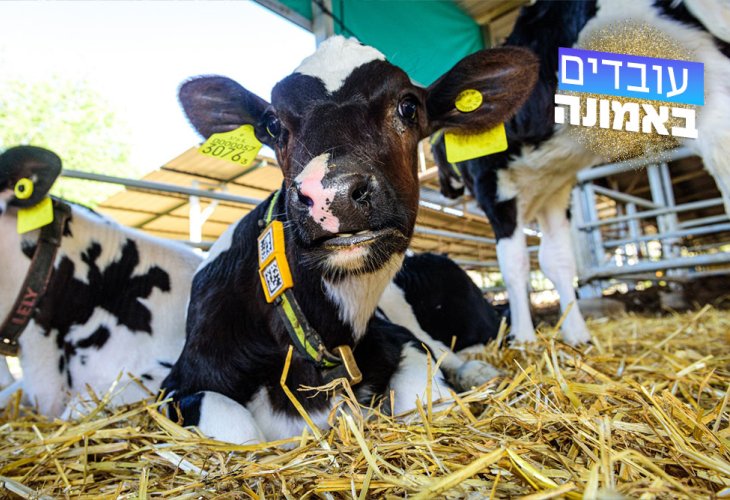
The field of robotics, which is taking the world by storm, shows no signs of stopping, and it has even reached the dairy sector. In the unique dairy established by Nehemiah and Liora Asis, this is most fascinatingly evident, as they have taken all the equipment a step forward and turned the entire dairy into a robotic one.
The couple has been living for over 40 years in the settlement of Avnei Eitan, very close to the Syrian border. Over the years, they managed an agricultural farm with a dairy of about 70 cows, and about 17 years ago, they turned it into a robotic dairy with very special elements.
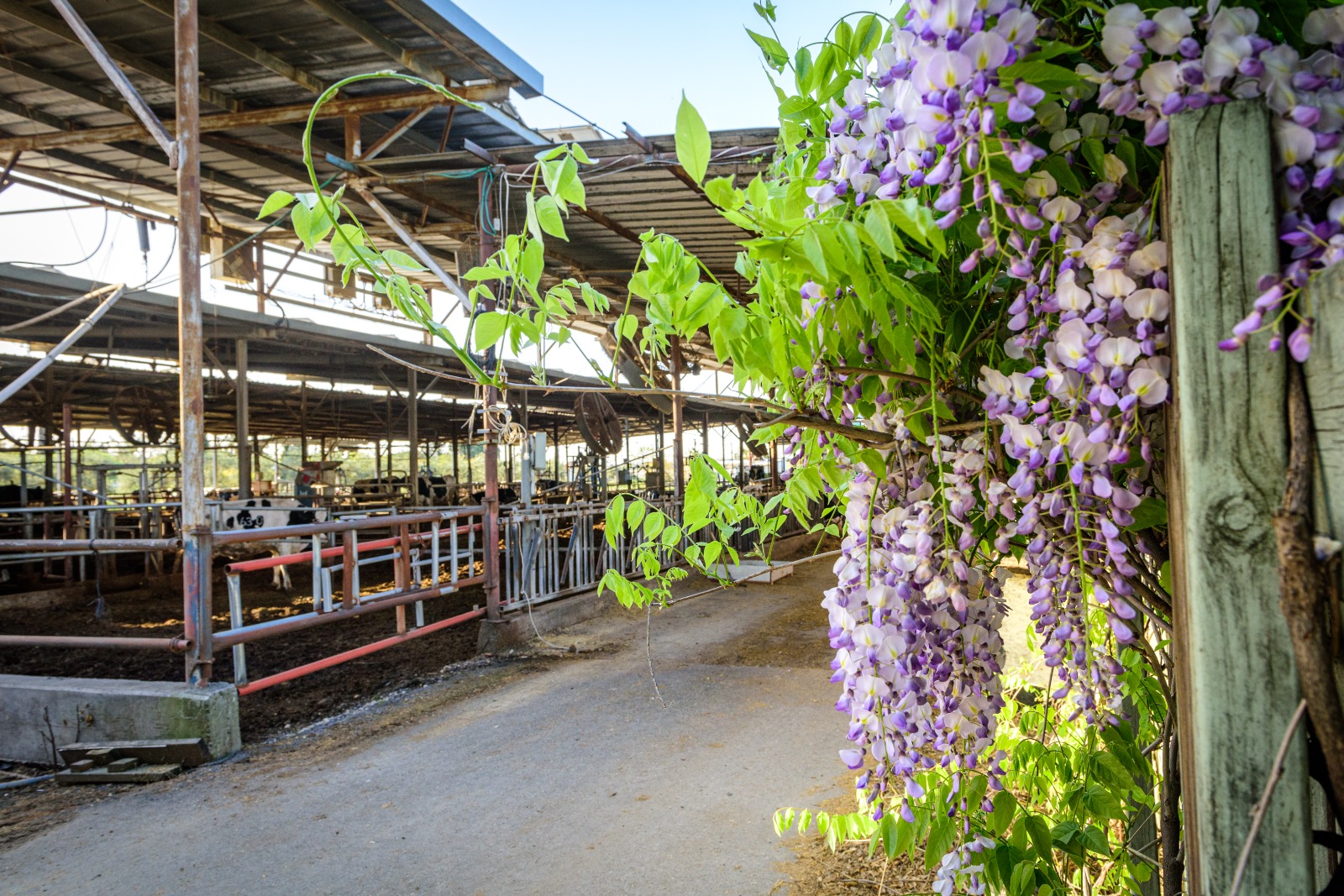
"All the inventions we developed came from thinking about the cows and their needs, with the goal being to provide them with the best conditions," Liora clarifies. "But of course, the main characteristic of our dairy is that the milking is not done by a milking machine but by a robot. The cow is the one who decides when she wants to be milked, and it is fascinating to follow and see how she knows to approach the robot and does it willingly."
But as it turns out, this is only the beginning since visitors to the robotic dairy encounter countless smart and intriguing developments, which, as Liora mentioned, are all intended for the benefit of the cows.
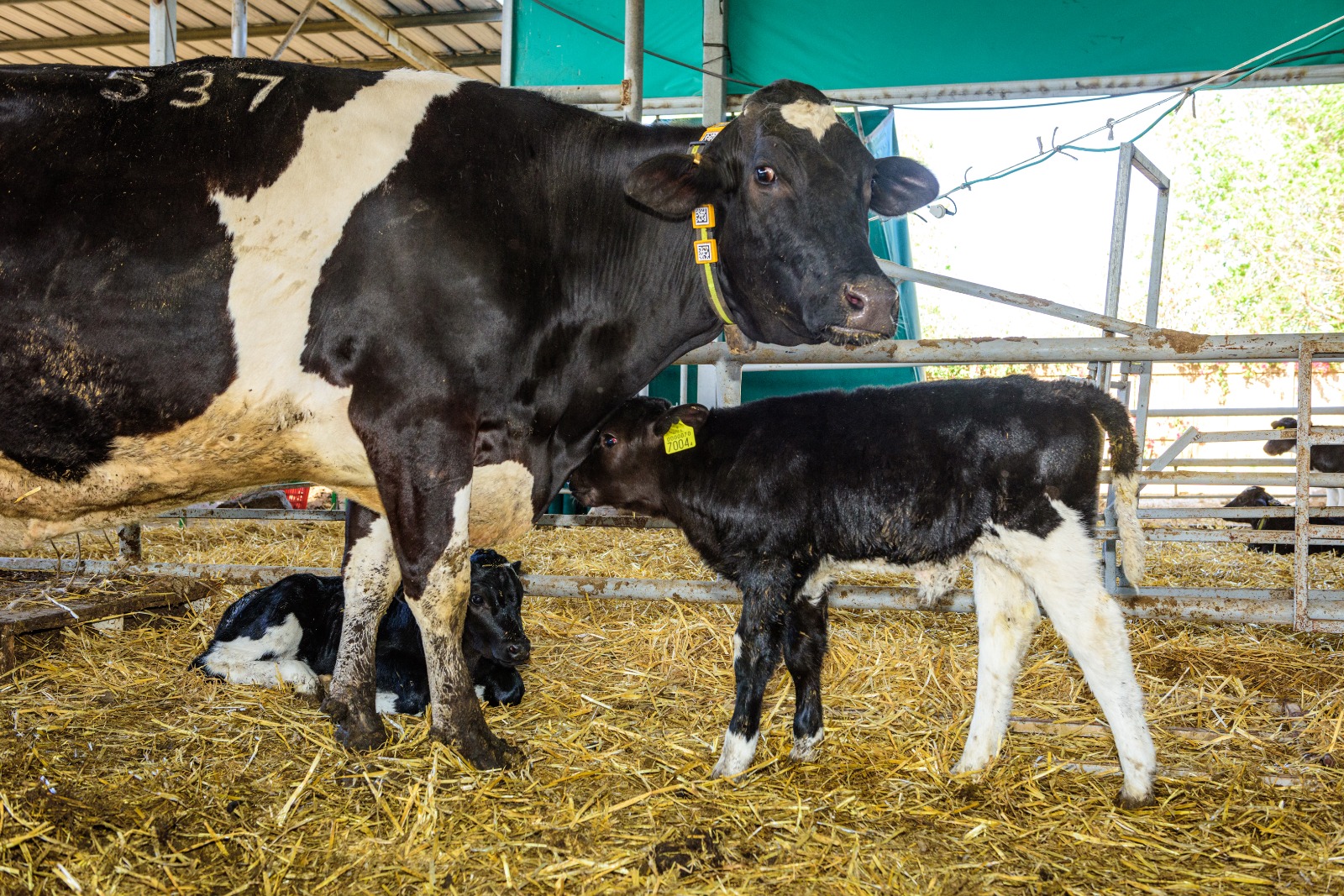
For the Benefit of the Cows
The significant change in the dairy began about 17 years ago. "Unfortunately, family dairies can hardly survive today," Liora explains what led to the situation, "and out of 14 family dairies that were in Avnei Eitan, only three remain. This happens mainly because the state requires us to sell the milk at prices that leave us almost no profit margin. In large dairies, profit is still possible because of the large-scale production, but when it comes to a small family dairy, any price reduction cuts the ability to survive."
But on the other hand, we as consumers want to see a decrease, not an increase, in the prices of dairy products...
"Since the cottage cheese protest 11 years ago, have you seen any price decreases?" Liora responds with a question. "The state cuts our profits, but in the process that dairy products undergo until they reach the consumer, there are many intermediaries who significantly increase the prices. The loss is for all of us, as consumers do not receive cheap products, and we, the dairymen's families, are left without profit. From personal acquaintance, I can say that hundreds of families have closed their dairies due to the situation.
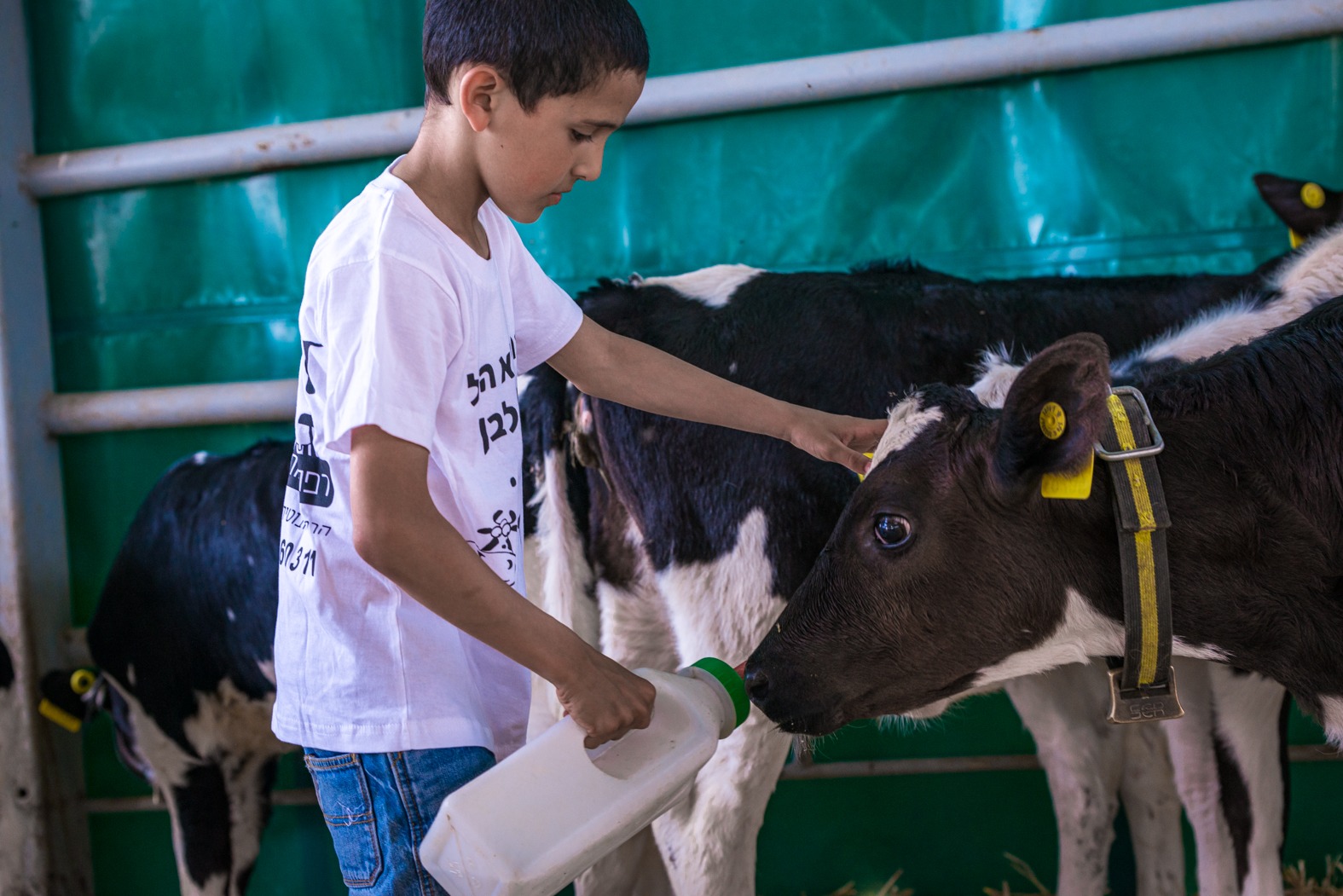
"I don't want to be a prophet of doom or a false prophet," she adds, "but I estimate there is a high probability that the next generation will not know what fresh milk is since it will transition to consuming milk powder. Because once the issue reaches the hands of capital owners and they make the decisions, then if it is more profitable for them to produce milk powder, that is what will happen, regardless of the nutritional value and also the economic value that the livelihood of families who have dedicated their entire lives for settlement and agriculture in this part of the country depends on."
Liora notes that before the coronavirus, they almost closed their dairy because they felt it had no future. "But then came the coronavirus, and it made us feel essential, so we continued," she explains. "Meanwhile, our daughter and son-in-law joined the business in the last year and decided they wanted to continue the farm, and together we advanced our visitor center, where groups from all over the country and even the world come to see up close how a robotic dairy works. We are overwhelmed with exciting feedback, and everyone who visits gives us so much strength and encouragement that it is now clear to us that we did the right thing and it's good we didn't give up the business."
But why would a cow want to approach the robot to be milked, and how does she even recognize it?
"A cow has three reasons to approach milking: delicious food that looks like a type of cornflakes, a cold shower that is very pleasant for her because a cow suffers from heat, and of course, milking. A cow needs to be milked and wants it, because if she's not milked, she suffers."
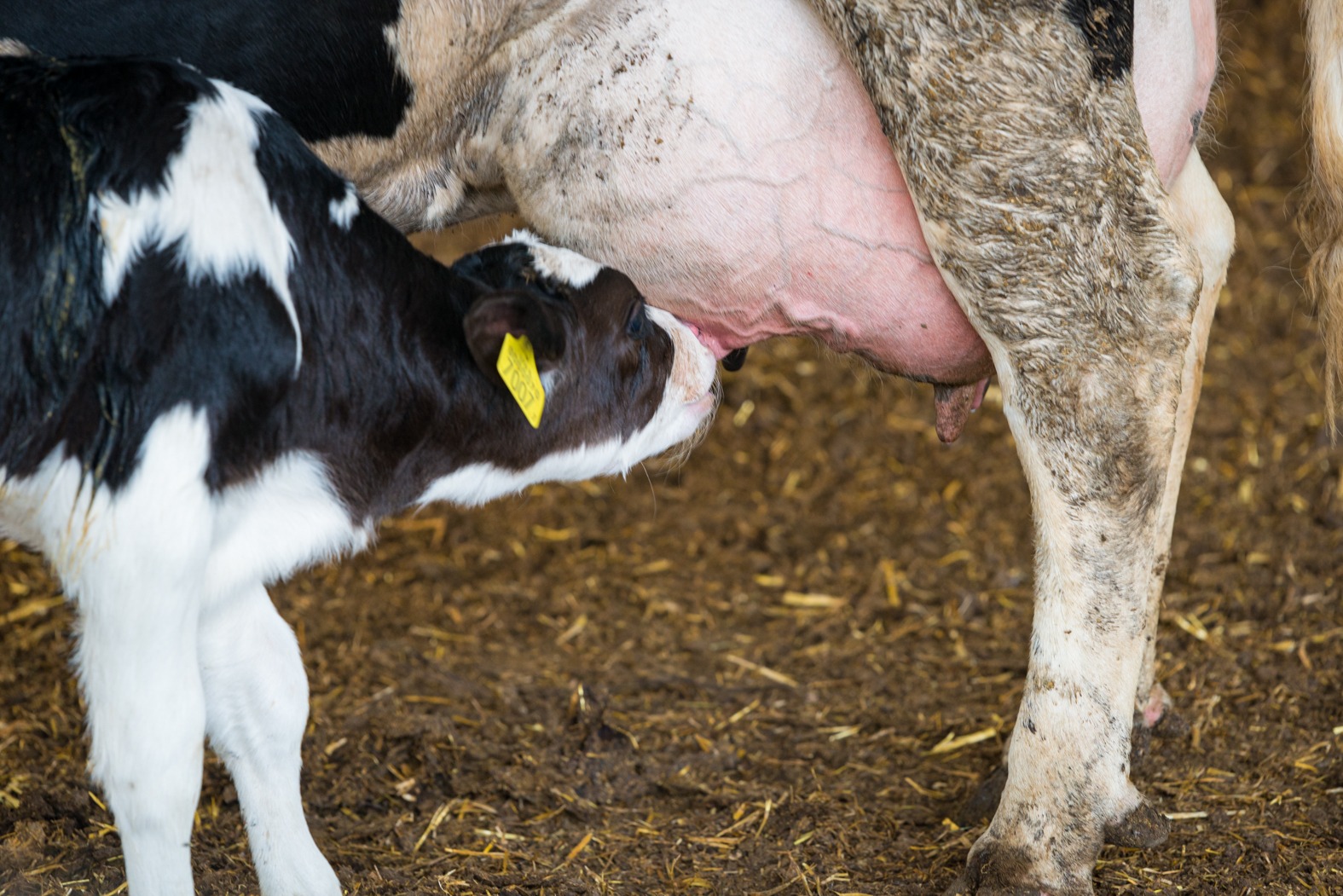
Do cows understand that because they go to the robot, they get all these benefits?
"Cows are considered intelligent animals compared to other cattle, and they certainly understand. Usually, it takes them a period of two days to two weeks to adapt to the robot and understand the procedure. It gets to the point where there are cows that go to the robot over and over, even when they don't really need to be milked, because they understand it's beneficial for them, but the robot is smart and does not accept them when there's no need. If a cow approaches before four hours have passed since her last milking, the robot does not allow her to enter."
Conversely, Liora points out that there are also cows that avoid coming, usually for a reason such as illness or other factors. "In situations where a cow does not come enough, she enters our 'blacklist', and we monitor her and check what happened to her and why she did not come to be milked".
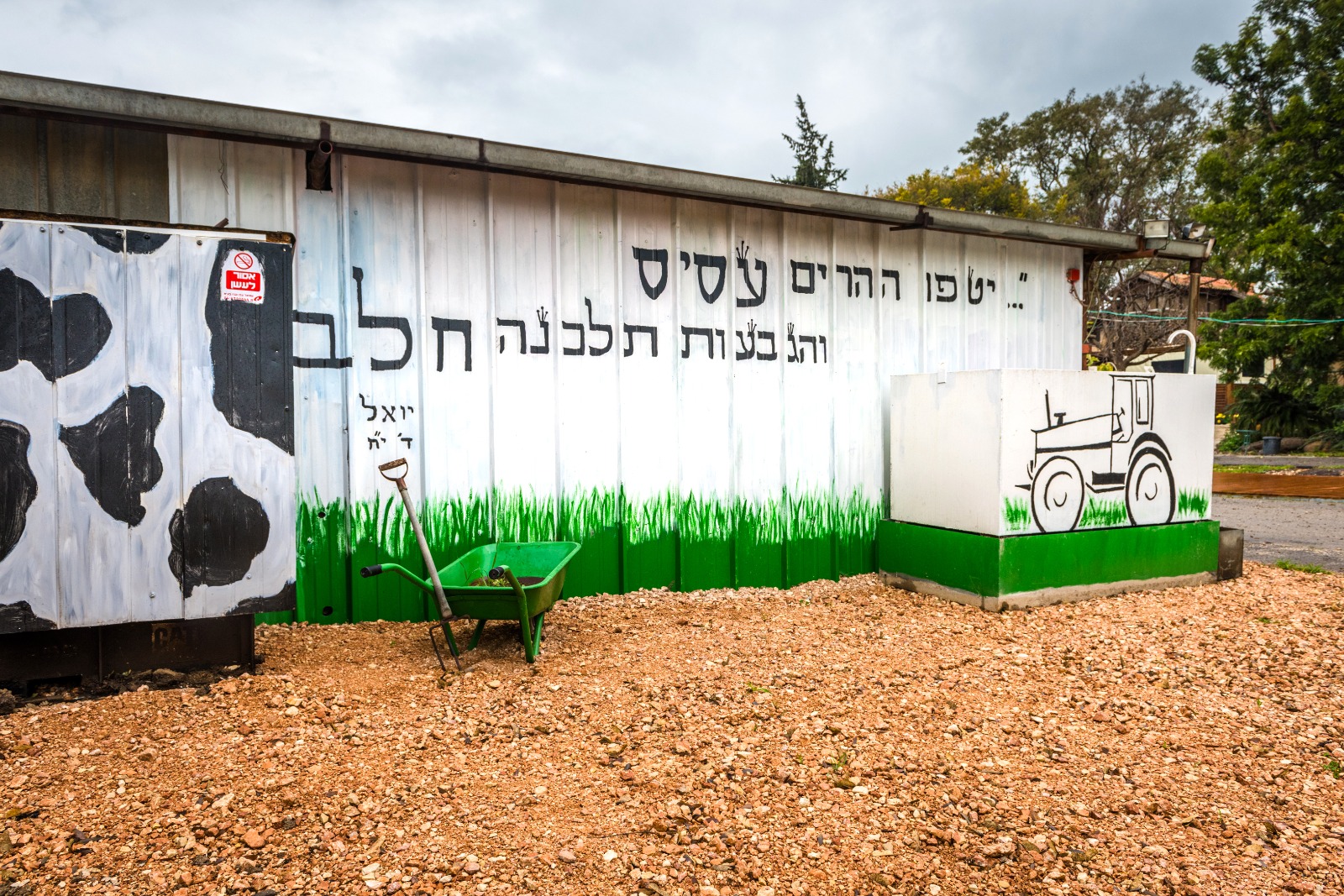
Liora also notes that their robotic dairy has another refreshing change, which is that they practice "full domestication," meaning they do not separate the calves from the mother cows and allow them to be together. "This is something very innovative and unique," she clarifies, "and it is fascinating to see the cows that choose at their will when to approach to nurse the calf and when they prefer the robot to extract the milk."
There are also additional unique developments, and Liora reveals one of them as an example: "A unique and pleasant massage station for cows." "It is a station made of a round brush, like a car wash," she describes, "the brush spins, and the cow can adjust herself to get the massage exactly in the part of the body she wants. In addition, we have fans in the dairy that operate throughout the day. Apart from cooling the cows, it dries the manure they sit on, making it more comfortable for them, as cows like to sit on a soft, dry surface. But these are just examples, the dairy is full of unique inventions and very special ideas, which I show to groups during an hour and a quarter tour, and I still feel I haven't managed to show everything."
When a Cow is Happy, We Are All Happy
Does better conditions for the cow also mean better milk quality?
"Absolutely, it is unequivocally proven," Liora emphasizes, "Nowadays, it is known that to produce high-quality milk, a cow needs good living conditions, which is also why in recent years there are very strict laws regarding cows, primarily a law requiring each cow to have an area of 22 square meters for herself, and if a dairy does not have these spaces, then it is not a standard-compliant dairy. I must mention that regarding these laws, our dairy is considered very stringent."
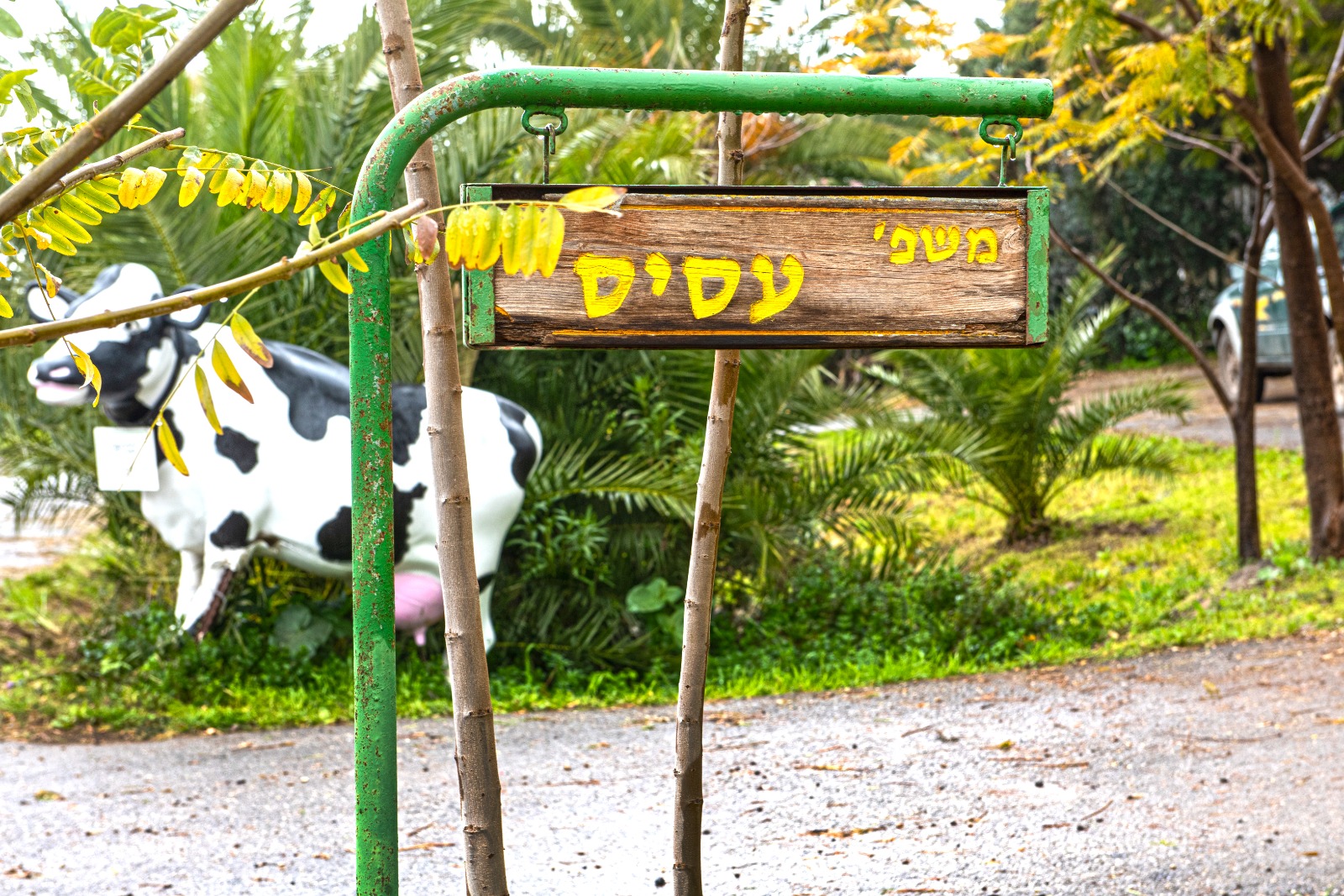
Since the visitor center was established, Liora has encountered many moving scenes, such as classes of special education children visiting the place, tourists coming from all over the world like India, Mexico, China, and even a top official from the Bahraini embassy who came to see the dairy up close. "We also host quite a few vegetarian or vegan teenagers," she shares. "Usually, it is their parents who bring them, often expressing concern that their children will not connect with the activities of the place. But I don't give up, I include them in the tour and explain the delicacy and compassion that accompanies every action we perform in the dairy, eventually trying to convey the motto I believe in: in life, not everything is black and white, there is also pink. The cow is indeed black and white, but her udder is pink. If we are not extreme, we can see many beautiful colors in between, and that's exactly where the golden path, which is also the path of milk, lies."
She also has a word in conclusion: "The story of our dairy's establishment began with Grandpa Gad, Nehemiah's father, who established the first dairy actually in a rural settlement in the south with just two cows, one he named 'Atida' and the other 'Magsima'. He was a very wise man who skillfully combined Torah and work, and in the activities we do today, we feel a great privilege to continue in his path."

